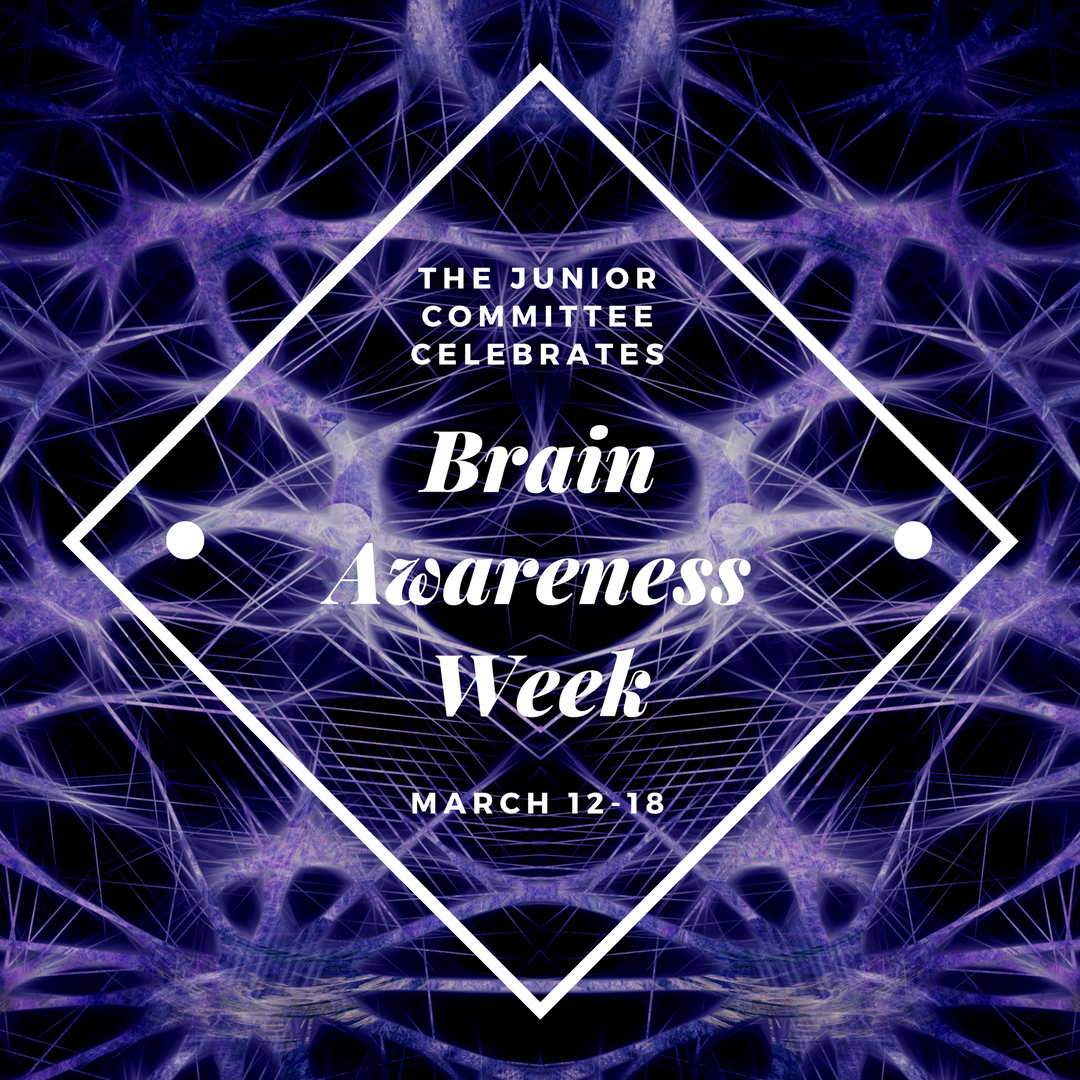Brain Awareness Week

In honor of Brain Awareness Week, we posed some questions to AlzScience blogger and JC member Maya Gosztyla. We hope you enjoy learning something new about our most powerful organ!
Q: What can I do to improve my brain health and/or reduce my risk of developing Alzheimer’s or other forms of dementia?
A:Many people assume that because your parent or grandparent was diagnosed with Alzheimer’s disease, you’re going to get it too. In reality, this is far from certain. Your genetics only constitute around 30% of your Alzheimer’s risk. The remaining 70% of the risk is entirely up to you! There are lots of simple actions you can take to dramatically reduce your risk of developing Alzheimer’s or other forms of dementia. Here are my top five tips:
- Improve your diet. Most things that are healthy for your body are also healthy for your brain. You don’t have to tackle your diet overnight; start small by cutting out sugary beverages or eating more leafy greens. The Mediterranean diet is a great option for brain health.
- Get enough sleep. While you’re asleep, your brain is bathed in fluids that flush away harmful toxins. That means when you’re sleep-deprived, your brain can become “dirty,” which increases your risk of Alzheimer’s. Aim for at least 7-8 hours every night.
- Protect your brain from injuries. You may think that you’re safe from head injuries if you’re not a football player, but in reality, falls and car accidents are the two most common causes. Install house fixtures to prevent falls and always wear your seatbelt while driving.
- Hit the gym. Exercise protects your brain from dementia and is also great for your mood and overall health. Healthy adults should aim for 2.5 hours of moderate aerobic exercise per week, plus 2 sessions of strength-training.
- Be socially active. Loneliness can increase your risk of Alzheimer’s disease, depression, and even heart disease. Besides socializing with friends, you can also try adopting a pet, joining social media, or volunteering in the community.
Check out this article to learn more about ways you can reduce your Alzheimer’s risk!
Q: What benefit can genetic testing provide in relation to brain health?
A: An important factor to consider here is that there are two types of Alzheimer’s. The early-onset variety is fairly rare and has a strong genetic influence. Many people who have a parent with early-onset Alzheimer’s choose to get tested because they have a 50% chance of inheriting the disease gene. The tests are reliable enough to give fairly conclusive answer as to whether or not they will develop the disease, and knowing this may assist them in planning their lives for the future. However, late-onset Alzheimer’s, which includes around 95% of cases, has more complex genetics. Having a parent with late-onset Alzheimer’s only slightly increases your risk, and there is no genetic test that can conclusively tell you whether or not you’ll get the disease. The strongest genetic risk factor we know of is a gene called APOE, which comes in three varieties: APOE2, APOE3, and APOE4. Having one or two copies of APOE4 can increase your risk of developing Alzheimer’s. However, not everyone with APOE4 will get Alzheimer’s and not everyone with Alzheimer’s has APOE4. Whether or not you should get tested for APOE depends on your individual personality. Some people may become complacent after receiving their test results. For example, if they found out they don’t have APOE4, they might incorrectly assume that they’re safe from Alzheimer’s and stop taking care of their brain health. Or if they find out they do have APOE4, they may lose hope in their ability to prevent Alzheimer’s. Before deciding to get tested, you should consider how you’re likely to react to each possible outcome. Would you use your test results as a motivating factor to take care of your brain health, or could it lead to complacency? For some people, it may be better not to know their APOE status, while for others it could be useful to know.
Q: I’ve heard that Alzheimer’s can’t be effectively treated, but I know there are medicines for Alzheimer’s- what do they do and are they effective?
A: There are currently several drugs on the market to temporarily alleviate some of the symptoms of Alzheimer’s disease. They generally fall into two categories: acetylcholinesterase inhibitors and memantine. Acetylcholinesterase inhibitors, which include Aricept, Exelon, and Razadyne, work by increasing the levels of a neurotransmitter called acetylcholine in your brain, which helps to provide a small boost in memory and cognition. These drugs are normally prescribed during the early stages of the disease and can slightly delay the worsening of symptoms. Memantine, commonly known as the drug Namenda, works by regulating a different neurotransmitter called glutamate. Namenda, as well as Namzaric (a combination of acetycholinesterase inhibitor and memantine), are usually prescribed in the later stages of Alzheimer’s. These can sometimes help people to perform daily tasks, but they are not effective for everyone and can also cause some unpleasant side effects. Unfortunately, while these drugs can improve the quality of life for some people with Alzheimer’s, none of them is considered a cure, as they do not alleviate the most severe symptoms or delay the overall progression of the disease. Until a cure for Alzheimer’s disease is found, the best option is prevention of the disease through brain-healthy lifestyle choices.